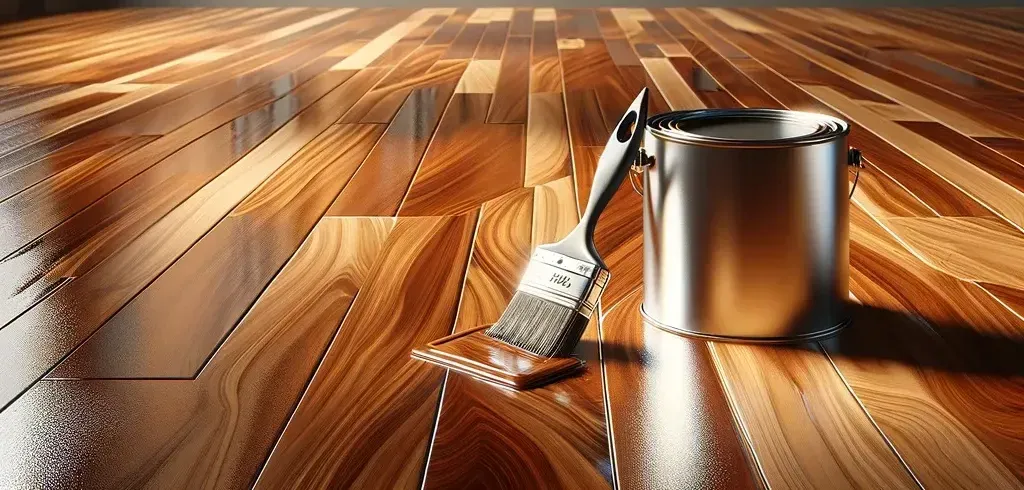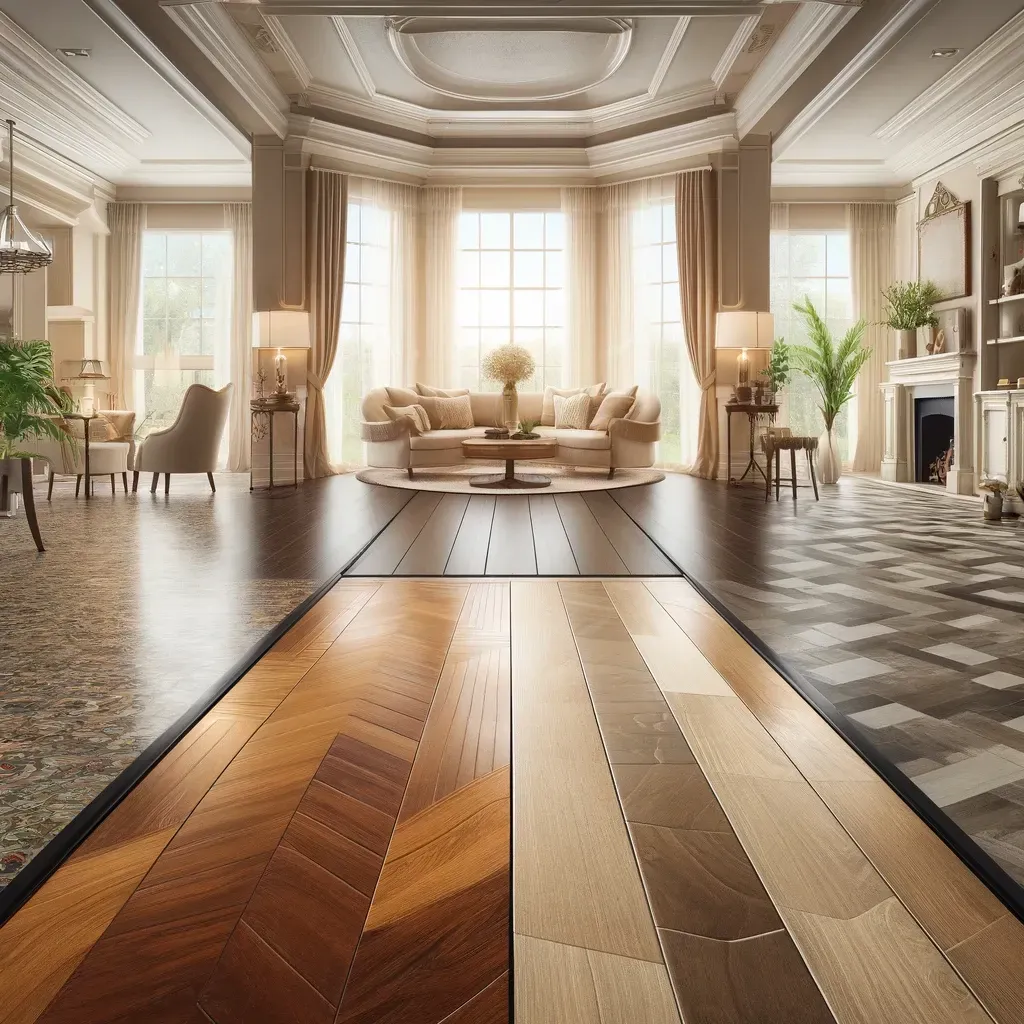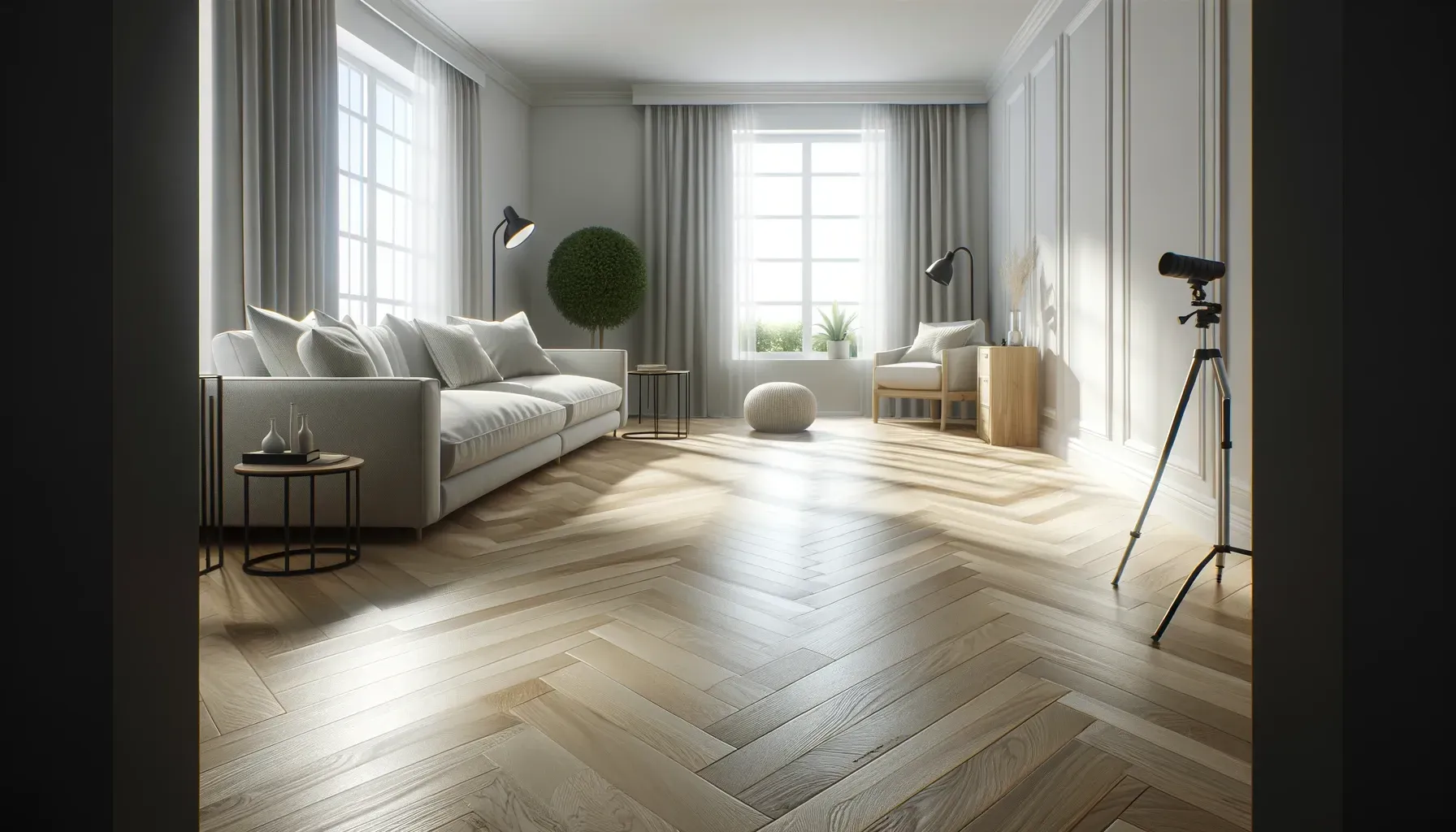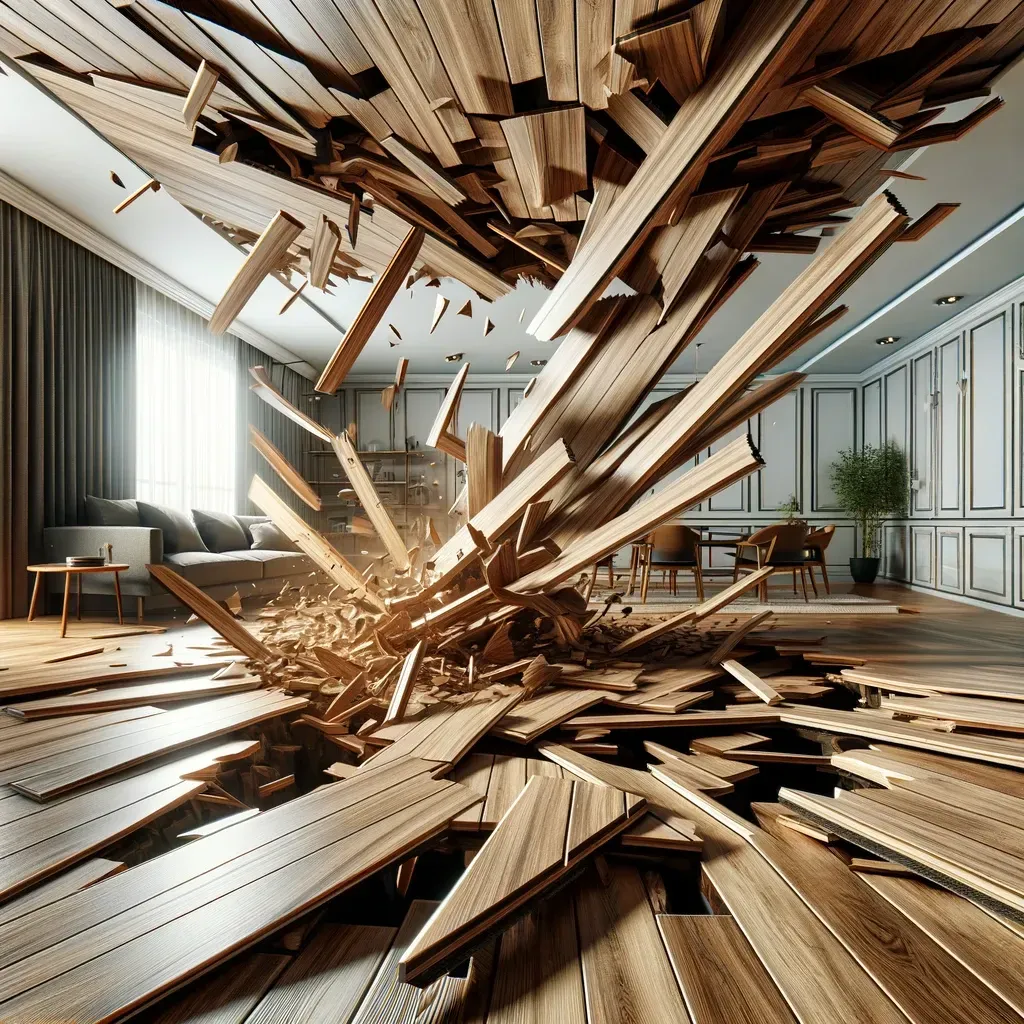The Science Behind Hardwood Floor Finishes: Understanding Types, Composition, and Selection

Hardwood floors are a timeless choice for both traditional and modern homes, offering durability, warmth, and a touch of elegance. However, the true hero behind the enduring beauty and resilience of hardwood floors is the finish. A proper finish not only enhances the wood's natural beauty but also protects it from wear, tear, and environmental damage. In this post, we'll dive deep into the science behind hardwood floor finishes, explore the different types available, their chemical compositions, benefits, and guide you on how to choose the best one for your home.
Understanding Hardwood Floor Finishes
Hardwood floor finishes are protective coatings applied to the surface of the wood. They serve multiple purposes: enhancing the wood's appearance, protecting it from physical and water damage, and making maintenance easier. The finish is what you walk on, clean, and what takes the brunt of daily life's wear and tear.
Types of Hardwood Floor Finishes
There are several types of finishes available, each with its unique properties and benefits. The most common include:
1. Water-Based Polyurethane
- Chemical Composition: Composed of synthetic resins, plasticizers, and other film-forming elements dissolved in water.
- Benefits: Offers a clear finish that maintains the wood's natural color, dries quickly, and has a low odor. It's also resistant to yellowing over time and provides a durable surface.
2. Oil-Based Polyurethane
- Chemical Composition: Made from synthetic resins, linseed oil, or other natural oils, combined with solvents.
- Benefits: Known for its rich, amber hue, this finish adds depth to the wood grain and is highly durable. It's more moisture-resistant than water-based polyurethanes but takes longer to dry and has a stronger odor.
3. Hard-Wax Oil
- Chemical Composition: A blend of natural oils and waxes, including tung oil, linseed oil, and carnauba wax.
- Benefits: Penetrates deep into the wood to enhance its natural beauty and provides a breathable finish that is easy to repair. It offers a matte, natural look but requires more maintenance than polyurethanes.
4. Aluminum Oxide
- Chemical Composition: Aluminum oxide particles embedded in a UV-cured urethane coating.
- Benefits: Extremely durable and scratch-resistant, making it ideal for high-traffic areas. It's often used in prefinished hardwood flooring.
5. Shellac
- Chemical Composition: A natural resin secreted by the female lac bug, dissolved in alcohol.
- Benefits: Provides a warm, amber glow, and is easy to apply and repair. However, it's less durable than modern finishes and not recommended for areas with high moisture levels.
6. Lacquer
- Chemical Composition: A solution of nitrocellulose and other resins in a volatile solvent.
- Benefits: Dries very quickly and creates a hard, durable finish. However, it can be hazardous to apply due to its flammability and strong fumes.

How to Choose the Best Finish for Your Hardwood Floors
Selecting the right finish for your hardwood floors depends on several factors:
Lifestyle and Traffic
Consider the level of foot traffic your floors will endure. For high-traffic areas, a durable finish like aluminum oxide or oil-based polyurethane might be the best choice. Families with pets or children might prioritize scratch resistance and ease of maintenance, for which a hard-wax oil or water-based polyurethane could be ideal.
Aesthetic Preferences
The finish affects the floor's final appearance. If you prefer a natural look, hard-wax oil or shellac might be appealing. For a more pronounced grain and color depth, oil-based polyurethane is excellent. Water-based polyurethane keeps the wood's natural color intact.
Environmental Considerations
If indoor air quality and low VOC (Volatile Organic Compounds) levels are important to you, water-based polyurethane and hard-wax oil finishes are more environmentally friendly options. They emit lower levels of toxic fumes compared to oil-based finishes and lacquers.
Maintenance and Durability
Consider how much maintenance you're willing to perform. Polyurethane finishes are known for their durability and low maintenance, while hard-wax oils require more frequent care but are easier to repair.
The Science of Application
Applying a hardwood floor finish is as much about technique as it is about the composition. Proper application ensures maximum durability and aesthetic appeal. Most finishes require careful preparation of the wood surface, including sanding to ensure smoothness and cleaning to remove dust and debris. The number of coats, drying time, and curing process vary between finishes, influencing the final outcome.
Call today to discuss the best options for your hardwood flooring!
Conclusion
The science behind hardwood floor finishes is a fascinating blend of chemistry, aesthetics, and practical considerations. Whether you're renovating an old space or finishing new hardwood floors, understanding the types of finishes available, their chemical compositions, and their benefits is crucial in making an informed decision. Remember, the best finish for your floors depends on your lifestyle, aesthetic preferences, and maintenance willingness. With the right finish, your hardwood floors will not only look stunning but also stand the test of time, enduring the daily rigors of life while maintaining their timeless beauty.
Choosing the right hardwood floor finish is an investment in the longevity and beauty of your home. As you navigate the options, consider the science behind each type and how it aligns with your specific needs. A well-chosen finish will protect your floors, enhance their natural beauty, and ensure they remain a cherished element of your home for years to come.

Serving the Connecticut cities of Guilford, Madison, Clinton, Killingworth, Chester, Niantic, Deep River, Essex, Lyme, Old Lyme, East Lyme, Wallingford, Northford, North Branford, Waterford, Haddam, Westbrook, East Haddam, Groton, Branford, Salem, Montville, Ledyard, Stonington, North Stonington, Middlefield, East Hampton, Norwich, North Haven, Durham, Stamford, New London, Noank, Longhill, Mystic, Colchester, Cheshire and Old Saybrook.
Now Serving Springfield, MA and surrounding areas!


